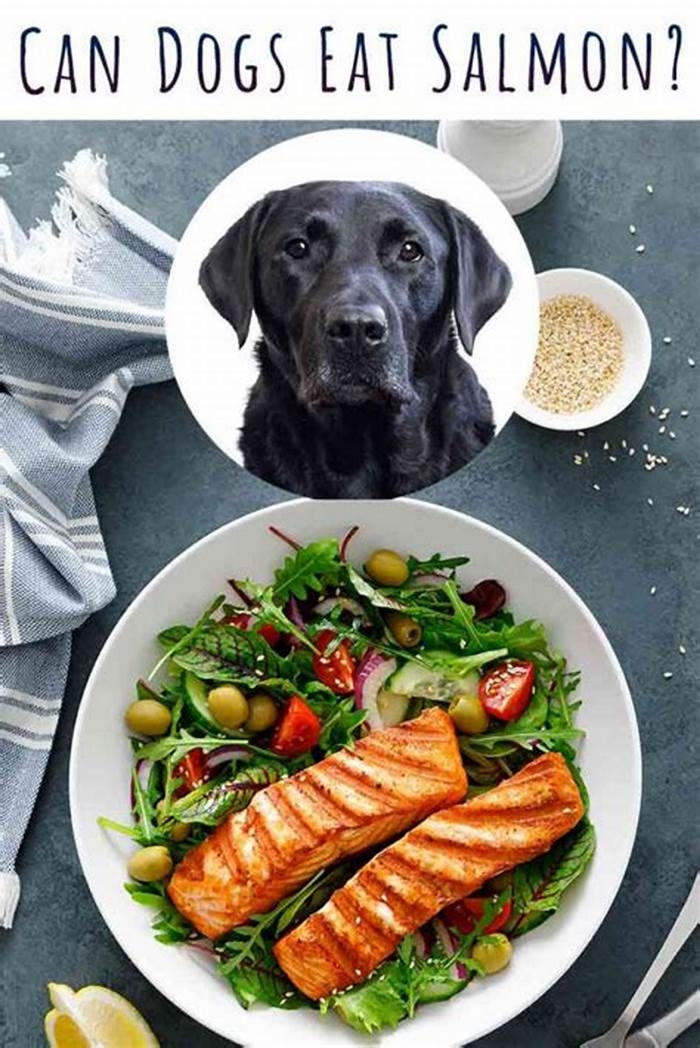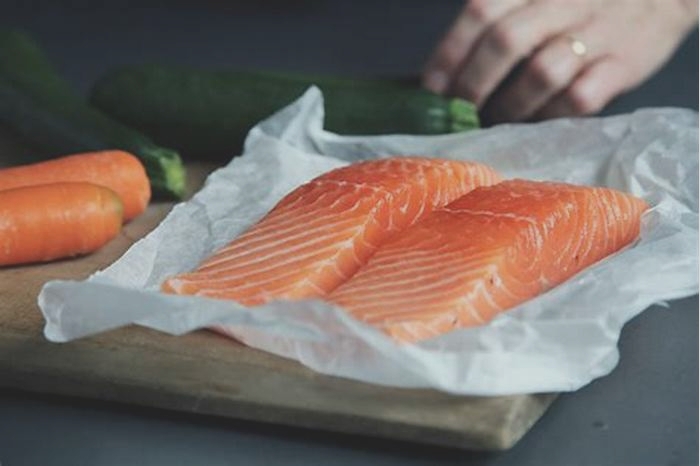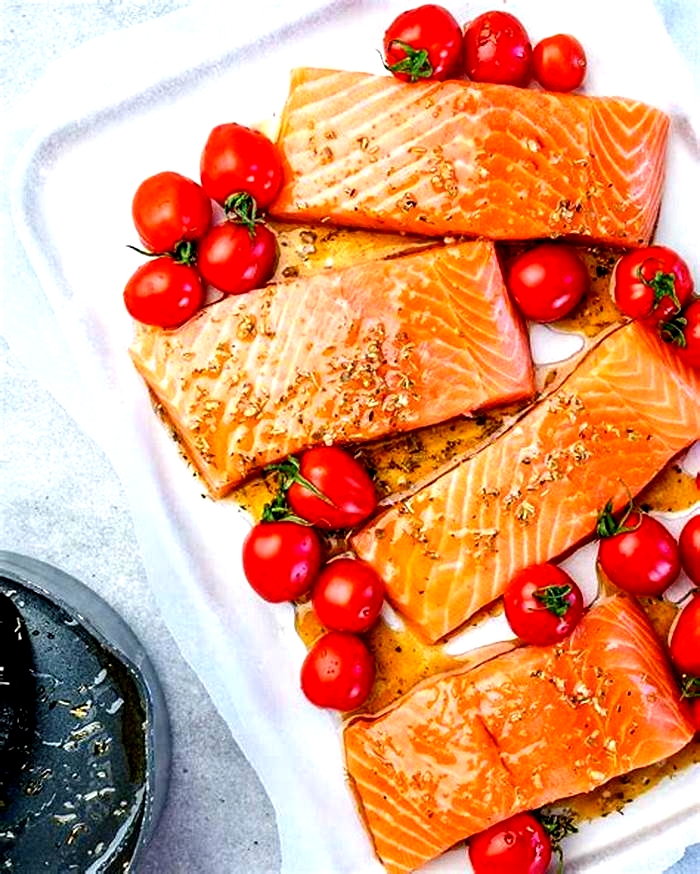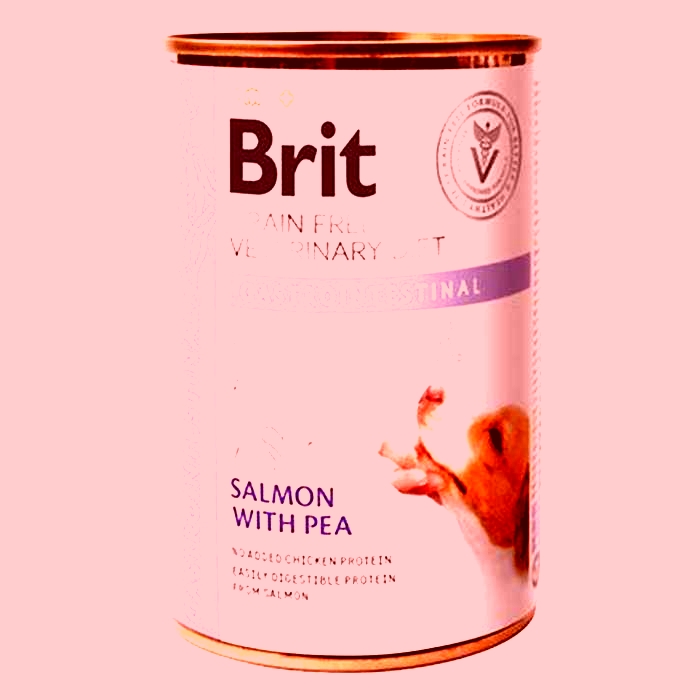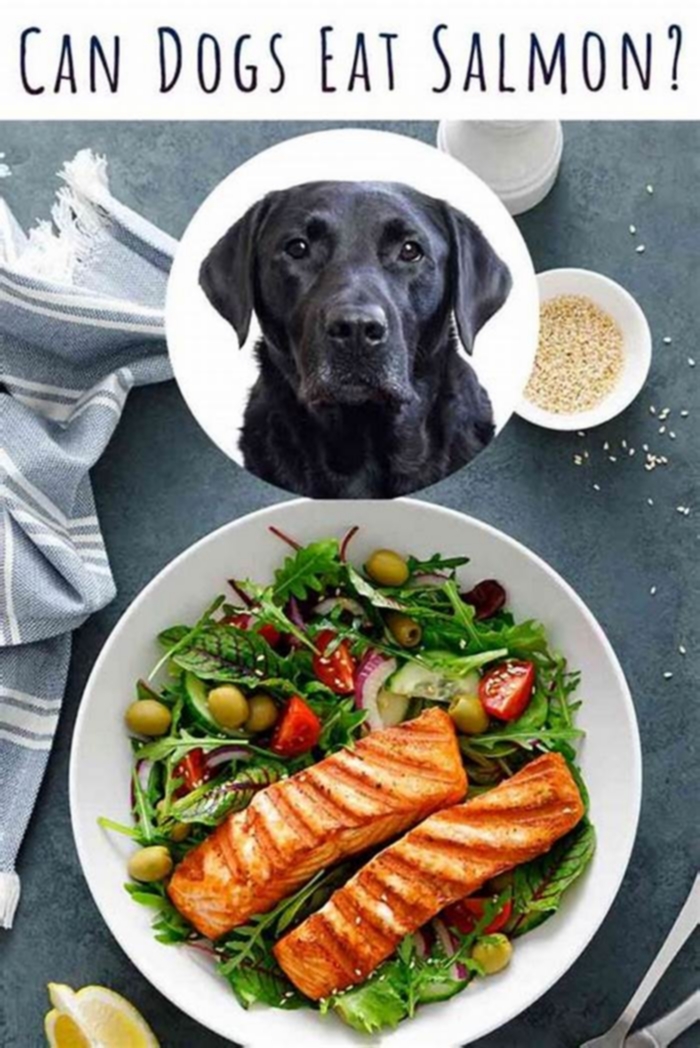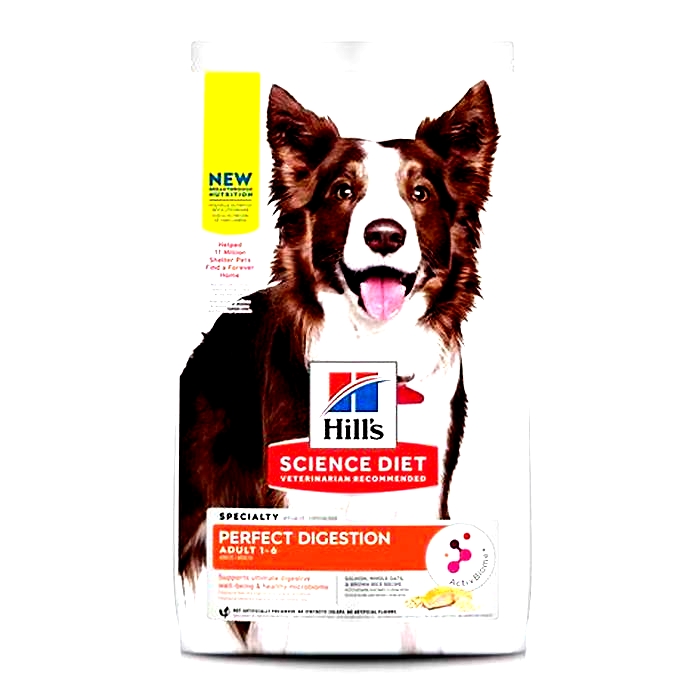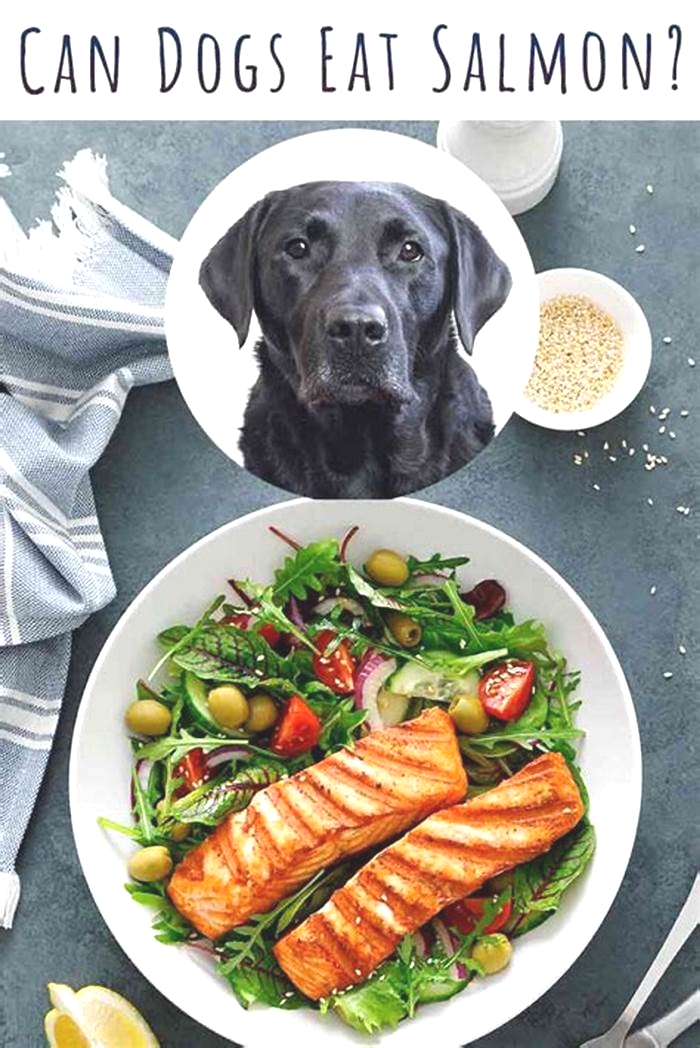Why Salmon is the Perfect Addition to Your Dog s Balanced Diet

Eating a balanced diet
Eating a healthy, balanced dietis an important part of maintaining good health, and can help you feel your best.
This means eatinga wide varietyof foods in the right proportions, and consuming the right amount of food and drink to achieve and maintain a healthy body weight.
This page covers healthy eating advice for the general population.
People with special dietary needs or a medical condition should ask their doctor or a registered dietitian for advice.
Food groups in your diet
The Eatwell Guide shows that to have a healthy, balanced diet, people should try to:
- eat at least 5 portions of a variety of fruit and vegetables every day (see 5 A Day)
- basemeals on higher fibre starchy foods like potatoes, bread, rice or pasta
- have some dairy or dairy alternatives (such as soya drinks)
- eat some beans, pulses, fish, eggs, meat and other protein
- choose unsaturated oils and spreads, and eat them in small amounts
- drink plenty of fluids (at least 6 to 8 glasses a day)
If you're having foods and drinks that are high in fat, salt and sugar, have these less often and in small amounts.
Try to choose a variety of different foods from the 5 main food groups to get a wide range of nutrients.
Mostpeople in the UKeat and drink too many calories, too much saturated fat, sugar and salt, and not enough fruit, vegetables, oily fishor fibre.
The Eatwell Guide does not apply to children under the age of 2 because they have different nutritional needs.
After the age of 2 years, children should move to eating the same foods as the rest of the family in the proportions shown in the Eatwell Guide.
Fruitand vegetables: are you getting your 5 A Day?
Fruit and vegetables area good source of vitamins and minerals and fibre, and should make up just over a third of the food you eat each day.
It's recommended that you eat at least 5 portions of a variety of fruit and vegetables every day. They can be fresh, frozen, canned, dried or juiced.
There's evidence that people whoeat at least5 portions of fruit and vegetables a day have a lower risk of heart disease, stroke and some cancers.
Eating5 portions is not as hard as it sounds.
A portion is:
- 80g of fresh, canned or frozen fruit and vegetables
- 30g of dried fruit which should be kept to mealtimes
- 150ml glass of fruit juice or smoothie but do not have more than 1 portion a day as these drinks are sugary and can damage teeth
Just 1 apple, banana, pear or similar-sized fruit is 1 portion each.
A slice of pineapple or melon is also 1 portion, and 3 heaped tablespoons of vegetables is another portion.
Adding a tablespoon of dried fruit, such as raisins, to your morning cereal is an easy way to get 1 portion.
You could also swap your mid-morning biscuit for a banana, and add a side salad to your lunch.
In the evening, have a portion of vegetableswith dinner and fresh fruitwith plain, lower fat yoghurt for dessert to reach your 5 A Day.
Find out more about what counts towards your 5 A Day
Starchyfoods in your diet
Starchy foods should make upjust overa third of everything you eat. This means your meals should be based on these foods.
Choose wholegrain or wholemeal varieties of starchy foods, such as brown rice, wholewheat pasta, and brown, wholemeal or higher fibre whitebread.
They contain more fibre, and usually more vitamins and minerals, than white varieties.
Potatoes with the skins onarea great source of fibre and vitamins. For example, when having boiled potatoes or a jacket potato, eat the skin too.
Find out more about starchy foods
Milkand dairy foods (and alternatives)
Milk and dairy foods, such as cheese and yoghurt, are good sources of protein.Theyalso contain calcium, which helps keep your bones healthy.
Go for lower fat and lower sugar products where possible.
Choose semi-skimmed, 1% fat or skimmedmilk, as well as lower fat hard cheeses or cottage cheese, and lower fat, lower sugar yoghurt.
Dairy alternatives, such as soya drinks, are also included in this food group.
When buying alternatives, choose unsweetened, calcium-fortified versions.
Find out more about milk and dairy foods
Beans, pulses, fish, eggs, meat and other proteins
These foods are all good sources of protein, which is essential for the body to grow and repair itself.
They're also good sources of a range of vitamins and minerals.
Meat is a good source of protein, vitamins and minerals, including iron, zinc and Bvitamins. It's also one of the main sources of vitamin B12.
Choose lean cuts of meat and skinless poultry whenever possible to cut down on fat. Always cook meat thoroughly.
Try to eat less red and processed meat like bacon, ham and sausages.
Find out more about including meat in your diet
Eggs and fish are also good sources of protein, and contain many vitamins and minerals. Oily fish is particularly rich in omega-3 fatty acids.
Aim to eat at least 2 portions of fish a week, including 1 portion of oily fish.
You can choose from fresh, frozen or canned, but remember that cannedand smoked fish can oftenbe high in salt.
Pulses, including beans, peas and lentils, are naturally very low in fat and high in fibre, protein, vitamins and minerals.
Nuts are high in fibre, and unsalted nuts make agood snack. But they do still contain high levels of fat, so eat them in moderation.
Oilsand spreads
Some fat in the diet is essential, but on average people in the UK eat too much saturated fat.
It's important to get most of your fat from unsaturated oils and spreads.
Swapping to unsaturated fats can help lower cholesterol.
Remember that all types of fat are high in energy and should be eaten in small amounts.
Find out more about the different types of fats
Eat less saturated fat, sugar and salt
Too much saturated fat can increase the amount of cholesterol in the blood, which increases your risk of developing heart disease.
Regularly consuming foods and drinks high in sugar increases your risk of obesity and tooth decay.
Eating too much salt can raise your blood pressure, which increases your risk of getting heart disease or having a stroke.
See 8 tips for healthy eating to find out more about why you need to cut down on saturated fat, sugarand salt, which foods they're found in,and how to make healthier choices.
Find out more about how to eat less saturated fat
Need to lose weight?
Most adults in England are overweight or obese. Check whether you're a healthy weight using the BMI calculator.
If you need to lose weight, you can use the NHS weight loss plan. It's a free 12-week diet and exercise plan to help you lose weight and develop healthier habits. It has been designed to help you lose weight safely, and keep it off.
Information:Self-refer for help with your weight
If you need help managing your weight, you might be able to refer yourself directly to services that can help you, without seeing a GP.
To find out if there are any services in your area:
- ask the reception staff at your GP surgery
- check your GP surgerys website
- contact your integrated care board (ICB) find your local ICB
- search online for NHS weight management services near you
Adult Perfect Digestion Salmon, Whole Oats, and Brown Rice Recipe Dog Food
INGREDIENTS:Salmon, Cracked Pearled Barley, Whole Grain Oats, Brown Rice, Whole Grain Corn, Corn Gluten Meal, Chicken Meal, Chicken Fat, Chicken Liver flavour, Pork Liver flavour, Ground Pecan Shells, Lactic Acid, Potassium Chloride, Flaxseed, Dried Beet Pulp, Dried Citrus Pulp, Soybean Oil, Calcium Carbonate, Choline Chloride, Iodized Salt, Dicalcium Phosphate, Pressed Cranberries, Pumpkin, vitamins (Vitamin E Supplement, L-Ascorbyl-2-Polyphosphate (source of Vitamin C), Niacin Supplement, Thiamine Mononitrate, Vitamin A Supplement, Calcium Pantothenate, Riboflavin Supplement, Biotin, Vitamin B12 Supplement, Pyridoxine Hydrochloride, Folic Acid, Vitamin D3 Supplement), Taurine, minerals (Ferrous Sulfate, Zinc Oxide, Copper Sulfate, Manganous Oxide, Calcium Iodate, Sodium Selenite), Mixed Tocopherols for freshness, Natural flavours, Beta-Carotene
Balanced Diet
The number of calories in a food refers to the amount of energy stored in that food. Your body uses calories from food for walking, thinking, breathing, and other important functions.
The average person needs about 2,000 calories every day to maintain their weight, but the amount will depend on their age, sex, and physical activity level.
Males tend to need more calories than females, and people who exercise need more calories than people who dont.
Current
The source of your daily calories are also important. Foods that provide mainly calories and very little nutrition are known as empty calories.
Examples of foods that provide empty calories include:
- cakes, cookies, and donuts
- processed meats
- energy drinks and sodas
- fruit drinks with added sugar
- ice cream
- chips and fries
- pizza
- sodas
However, its not only the type of food but the ingredients that make it nutritious.
A homemade pizza with a wholemeal base and plenty of fresh veggies on top may be a healthy choice. In contrast, premade pizzas and other highly processed foods often contain empty calories.
To maintain good health, limit your consumption of empty calories and instead try to get your calories from foods that are rich in other nutrients.
Get some tips for curbing cravings of less nutritious foods.
SummaryCalories are a measure of energy that foods supply. The number of calories you need will depend on your sex, age, and activity level.
A healthy, balanced diet will usually include the following nutrients:
A balanced diet will include a variety of foods from the following groups:
- fruits
- vegetables
- grains
- dairy
- protein foods
Examples of protein foods include meat, eggs, fish, beans, nuts, and legumes.
People who follow a vegan diet will focus entirely on plant-based foods. They wont eat meat, fish, or dairy, but their diet will include other items that provide similar nutrients.
Tofu and beans, for example, are plant-based sources of protein. Some people are intolerant of dairy but can still build a balanced diet by choosing a variety of nutrient-rich replacements.
Foods to avoid
Foods to avoid or limit on a healthy diet include:
- highly processed foods
- refined grains
- added sugar and salt
- red and processed meat
- alcohol
- trans fats
Whats healthy for one person may not be suitable for another.
Whole wheat flour can be a healthy ingredient for many people but isnt suitable for those with a gluten intolerance, for example.
Learn about 50 super healthy foods.
Fruits
Fruits are nutritious, they make a tasty snack or dessert, and they can satisfy a sweet tooth.
Local fruits that are in season are fresher and provide more nutrients than imported fruits.
Fruits are high in sugar, but this sugar is natural. Unlike candies and many sweet desserts, fruits also provide fiber and other nutrients. This means theyre less likely to cause a sugar spike and theyll boost the bodys supply of essential vitamins, minerals, and antioxidants.
If you have diabetes, your doctor or dietitian can advise you on which fruits to choose, how much to eat, and when.
Learn about 11 low-sugar fruits.
Vegetables
Vegetables are a key source of essential vitamins, minerals, and antioxidants. Eat a variety of vegetables with different colors for a full range of nutrients.
Dark, leafy greens are an excellent source of many nutrients. They include:
Local, seasonal vegetables are often reasonable in price and easy to prepare. Use them in the following ways:
- as a side dish
- roasted in a tray with a splash of olive oil
- as the base in soups, stews, and pasta dishes
- as a salad
- in pures
- in juices and smoothies
Grains
Refined white flour is featured in many breads and baked goods, but it has limited nutritional value. This is because much of the goodness is in the hull of the grain, or outer shell, and the center, or wheat germ, which manufacturers remove during processing.
Whole grain products include the entire grain, including the hull and germ. They provide additional vitamins, minerals, and fiber. Many people also find that whole grains add flavor and texture to a dish.
Try switching from white breads, pastas, and rice to whole grain options.
Proteins
Meats and beans are primary sources of protein, which is essential for wound healing and muscle maintenance and development, among other functions.
Animal protein
Healthy animal-based options include:
- red meats, such as beef and mutton
- poultry, such as chicken and turkey
- fish, including salmon, sardines, and other oily fish
Processed meats may increase the risk of cancer and other diseases, according to some
Some processed meats also contain a lot of added preservatives and salt. Fresh, unprocessed meat is the best option.
Plant-based protein
Nuts, beans, and soy products are good sources of protein, fiber, and other nutrients.
Examples include:
Tofu, tempeh, and other soy-based products are excellent sources of protein and are good alternatives to meat.
Dairy
Dairy products provide essential nutrients, including:
They also contain fat. If youre seeking to limit your fat intake, reduced fat options might be best. Your doctor can help you decide.
For those following a vegan diet, many dairy-free milks and other dairy alternatives are now available, made from:
- flax seed
- almonds and cashews
- soy
- oats
- coconut
These are often fortified with calcium and other nutrients, making them excellent alternatives to dairy from cows. Some have added sugar, so read the label carefully when choosing.
Fats and oils
Fat is essential for energy and cell health, but too much fat can increase calories above what the body needs and may lead to weight gain.
In the past, guidelines have recommended avoiding saturated fats, due to concerns that they would raise cholesterol levels.
More recent
Trans fats, however, should still be avoided.
Recommendations on fats can sometimes be hard to follow, but one
- Fats to love: vegetable oils and fish oils
- Fats to limit: butter, cheese, and heavy cream
- Fats to lose: trans fats, used in many processed and premade foods, such as donuts
Most experts consider olive oil to be a healthy fat, and especially extra virgin olive oil, which is the least processed type.
Deep fried foods are often high in calories but low in nutritional value, so you should eat them sparingly.
SummaryA balanced diet contains foods from the following groups: fruits, vegetables, dairy, grains, and protein.


